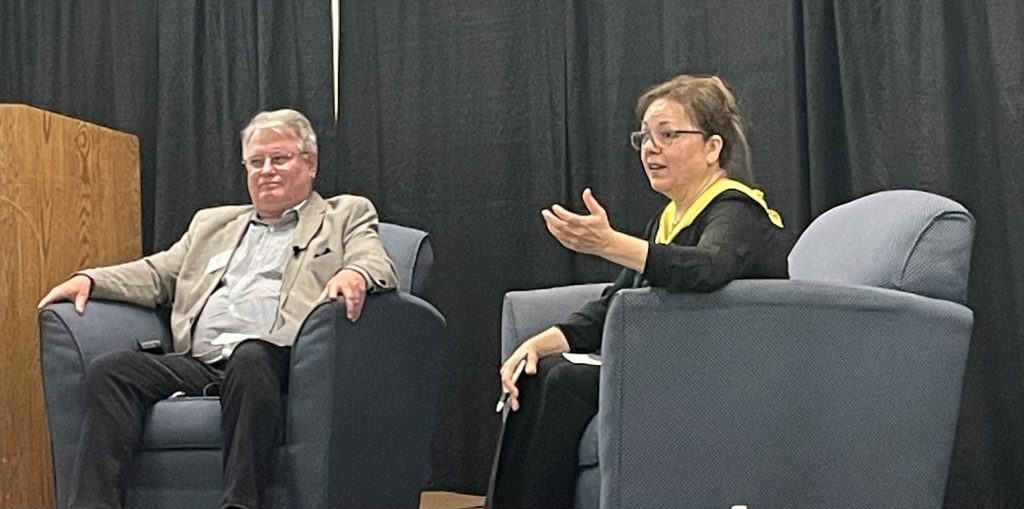
Why should college students in Peoria, Illinois care about Iran? Journalist Fatemeh Aman visited the Michel Student Center Ballroom on Thursday night to answer that very question.
Born in Iran and currently living in Washington, D.C., Aman has reported on Iran, Afghanistan and other Middle Eastern countries. The event, titled “Iran Today: Internal Unrest, External Challenges,” was co-sponsored by the Bradley Office of Global Studies and Initiatives and the Peoria Area World Affairs Council.
Throughout her prepared comments and moderated discussion portion, Aman highlighted the role of Iran’s young people, especially young women, as the cause for the ongoing social changes in the country.
“A rebellious generation is expressing dissatisfaction with the rulers of this country,” Aman said. “They have imposed… their own will upon people, and [the] young generation – young teenage girls – don’t take that.”
In September 2022, a young Kurdish woman was arrested in Tehran for not properly wearing her hijab. While in custody, the woman went into a coma and died. Although some Iranian women have been protesting compulsory hijab wearing since the Islamic revolution in 1979, this event and the ensuing protests drew worldwide attention.
“The death of an innocent girl, somebody who was just visiting relatives… was the beginning of something… that fascinated the world,” Aman said.
A Bradley student in attendance echoed Aman’s statements on the attention that the protests have received.
“I think it’s important because we should all be doing our part to know about what’s going on in the world,” sophomore psychology major Sadaf Seifianjoo said. “It’s being a good global citizen.”
Aman explained that every major role of the Iranian government is held by “religious hardline conservatives,” who are unpopular among many Iranian people. Suffering from enormous sanctions, the government is choosing to spend what it has on the nuclear program instead of helping its citizens.
“They know that they are hated,” Aman said. “They know that people are calling for changes; for improving some basic human rights, and the regime is unable to respond to those demands.”
In Aman’s eyes, the supreme leader believes that the more he concedes, the more the people will want. The Iranian government needs to enforce strict religious rules like the compulsory hijab in order to justify its existence. While not all Iranian women view the hijab as oppression, the Islamic Republic has been playing “a cat and mouse game” with women since its creation in 1979.
“It’s nice to get people’s perspectives on things and to be aware of what’s happening and to do our part,” senior biomedical science major Orlando Marin said. “It’s so hard to do our part since we’re all the way around the world but just being knowledgeable is a step in the right direction.”




